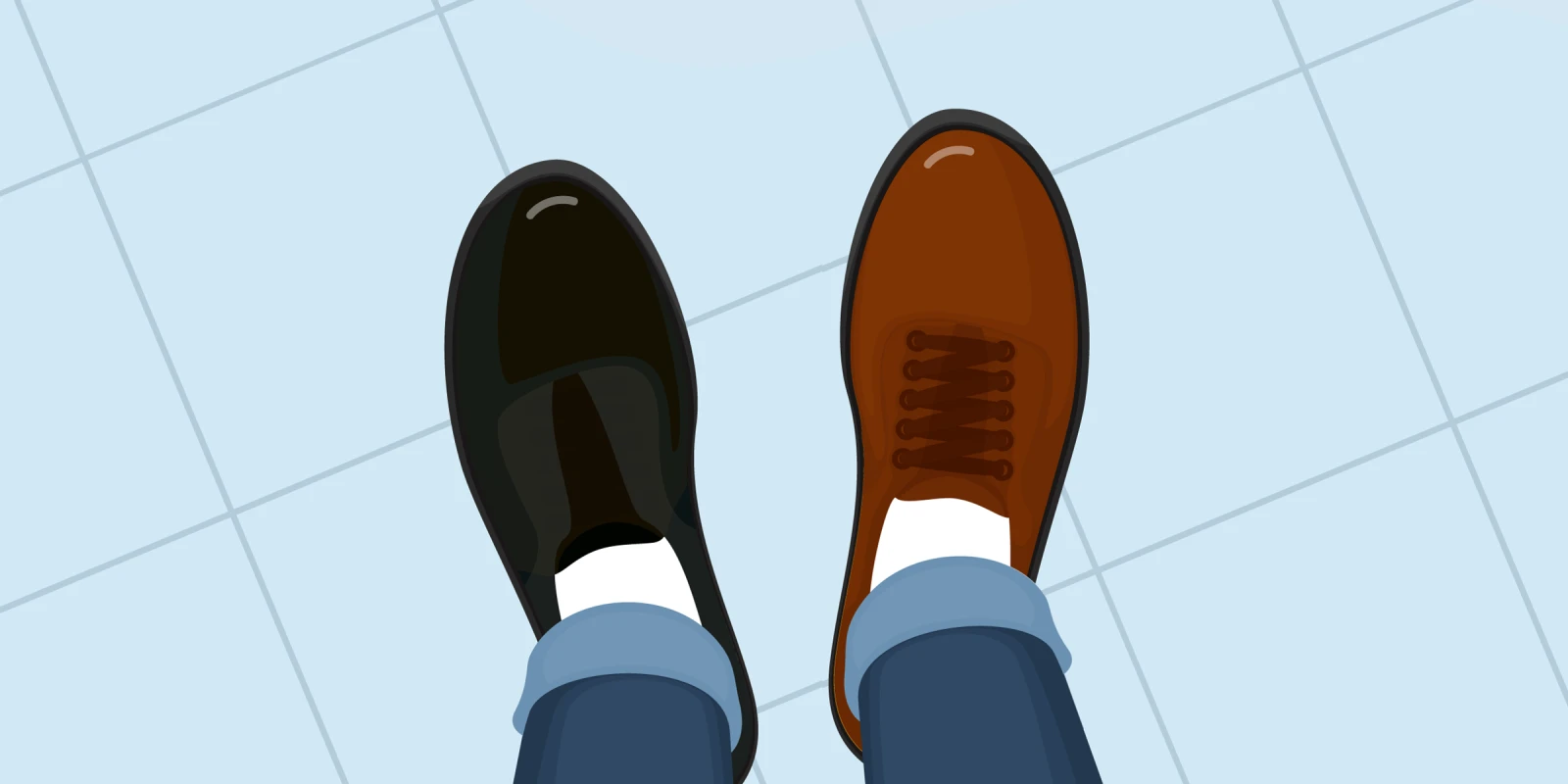I rounded the exam table to listen to Mrs. B’s heart and lungs. She casually gazed down at my feet and grinned. I paused, and followed her eyes to the floor. To my disbelief, I was wearing one brown shoe and one black shoe!
“I thought you were being trendy. You know, like how kids these days wear two different colors of socks and all,” said Mrs. B kindly.
I laughed. “I’ve never been trendy my whole life; in fact, I’m about the farthest thing from it. The funny thing is, I usually have trouble deciding whether to wear brown or black shoes with these pants. I guess I went with both today,” I replied.
We had spent the visit exploring her diabetes as per a typical patient-physician interaction. As we wrapped up, I realized my footwear foible had suddenly transformed our connection from physician-patient into a human-human one. Momentarily embarrassed, I recognized again that I am fallible. Typically, I am quite serious at work, and earnest in my professionalism. Letting a patient observe a moment of human (and thankfully, inconsequential) blundering led to a space of comedic reprieve. We both left the room smiling.
I reflected. I had left that morning for work distracted while talking to my husband on the phone. Caught up in the clinic rush, I had not registered any differences between my two feet until Mrs. B politely pointed it out. Mrs. B was already the fourth patient of the day! I completed the rest of the clinic wearing two different shoes, chuckling to myself when other patients noticed my mismatching attire.
The expectation of clinicians as inerrant has long set us up to fail, especially within systems that are far from perfect. Doctors carry no inherent powers beyond the reach of any other human. Yes, our training, intellect, skill, and judgment help us accomplish amazing things. We strive for systems that function excellently, equitably, and reliably to create better outcomes for patients. Still, doctors are people. Entitlement, impatience, and unrealistic expectations permeate many patient-physician interactions, attitudes which eat away at our joy in medicine. Our remedy is that we and patients need to embrace our mutual humanity. Clinicians are not in a higher or separate category than our patients; we are the same. We give grace in our interactions because we also want to be treated compassionately. We are thoughtful and careful in our practice of medicine because we were once without knowledge or understanding. Someday, if not experienced already, we will also need someone to care for us in our illnesses. Recognition of our own humanity and frailty leads us to be more kind, humble, and conscientious physicians.
Paradox exists in the clinician; we are expected to and must rise above normal "human" behavior and emotions in order to serve patients well. We experience encounters with strangers that are unusual in the grand scheme of life such as gaining intimate details of a person’s behavior or surgically cutting into another person’s body. Performing those functions requires a certain degree of emotional distancing, though not without empathy. One might consider the ability to be emotionally separate while being compassionate an anomaly. The human bridge we make with patients helps us care, maintain self-awareness, forgive ourselves when we also make mistakes, and ultimately pursue a better future for health care. In my simple case, a reaction of embarrassment to my small error could have served to reinforce my inadequacy and imperfections. Instead, a hearty laugh at my mix-up brought to the fore that I, as a doctor, am a common human sojourner alongside my patients.
Dr. Angela Larson is a family physician from Port Angeles, Washington. She received her medical degree from Oregon Health Sciences University in 2010 and is passionate about transforming health care for patients and clinicians.
Image by Victoria Sergeeva / Shutterstock







